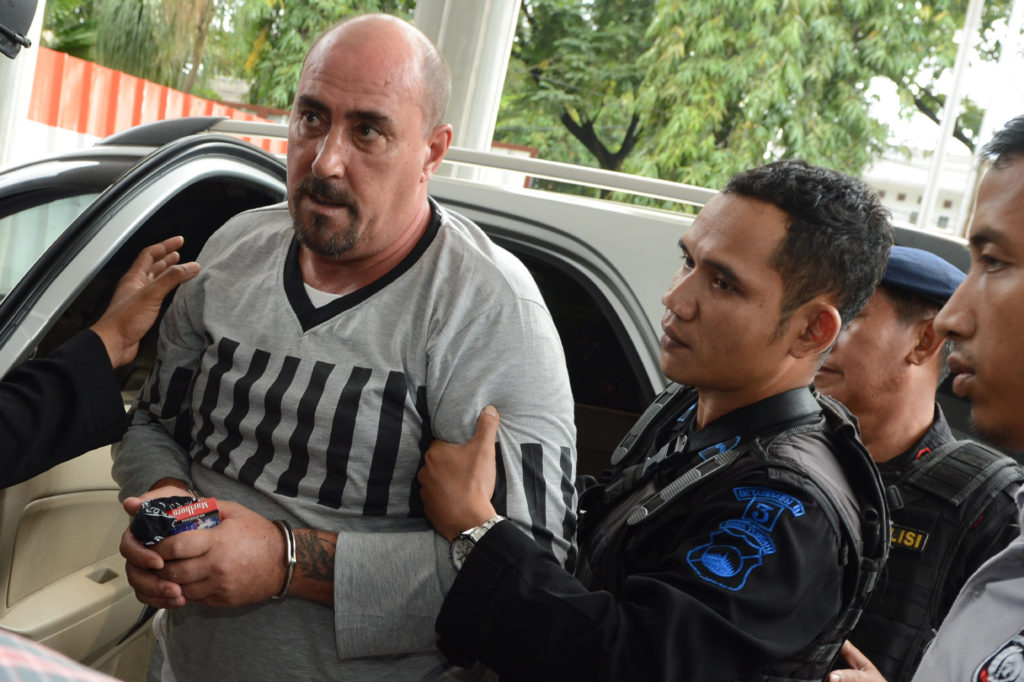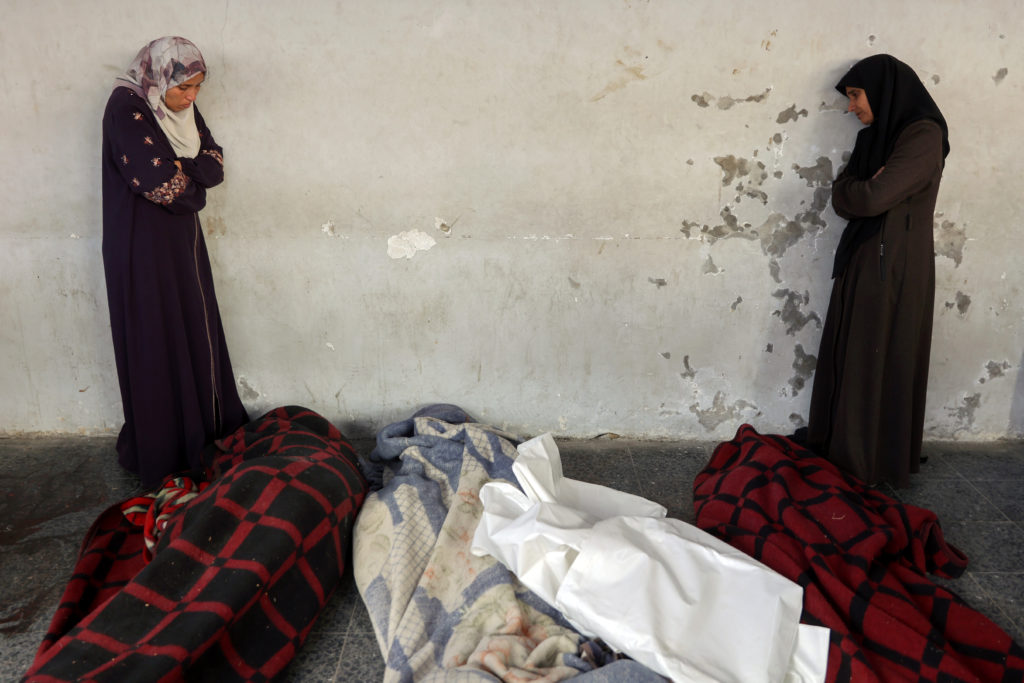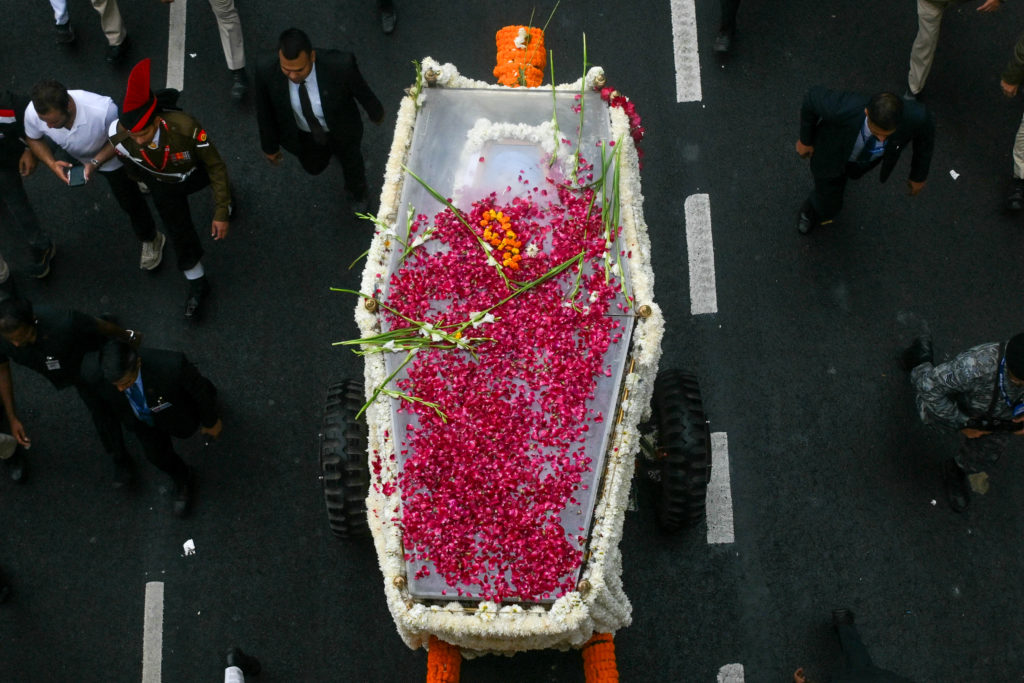Lebanon faced yet more misery Friday after the failure of premier-designate Saad Hariri to form a government, and as France prepares to host an aid conference on the first anniversary of the country’s port blast.
Hariri’s exit on Thursday comes amid a financial downturn branded by the World Bank as one of the planet’s worst since the mid-19th century.
His departure leaves the country rudderless as Lebanon faces soaring poverty, a plummeting currency, renewed street protests and shortages of basic items from medicine to fuel.
In a sign of what’s to come, Health Minister Hamad Hassan said Friday the government would scrap subsidies on medicines costing less than 12,000 Lebanese pounds ($8 at the official rate) to shore up foreign currency reserves.
“Lebanon, towards more danger,” read a headline on the front page of the country’s Annahar newspaper on Friday.
“With Hariri out, a worsening crisis is inevitable,” said Lebanon’s French-language daily L’Orient-Le Jour.
Former colonial power France, which has spearheaded international efforts to lift Lebanon out of crisis, said Friday it would host an aid conference on August 4.
That coincides with the first anniversary of a vast explosion at Beirut port that killed more than 200 people and levelled swathes of the capital.
The conference, organised with the United Nations, aims to “respond to the needs of the Lebanese, whose situation is deteriorating every day,” France’s foreign ministry said in a statement.
World powers have pledged millions of dollars in humanitarian aid since last year’s port blast, but made the money conditional on installing a government capable of tackling corruption.
Even as international pressure mounted, with the European Union threatening sanctions against Lebanese leaders, political squabbling has repeatedly stymied efforts to form a government.
The French foreign ministry said Hariri’s failure to form a government “confirms the political deadlock which Lebanese leaders have deliberately continued for months, even as Lebanon sinks into unprecedented economic and social crisis.”
– Political wrangling –
After nine months of deliberations with President Michel Aoun over a cabinet line-up, Hariri threw in the towel on Thursday.
He accused Aoun of seeking a share in government that would give his supporters a “blocking third” of seats — effectively a veto — a charge the president has denied.
“If I formed the government that Michel Aoun wanted… I wouldn’t have been able to run the country, because this isn’t a cabinet I can work with,” Hariri told Lebanon’s Al-Jadeed TV after he stepped down.
Aoun will now have to call on parliament to pick a new premier-designate, who will be tasked with assembling another cabinet, which in turn will have to be approved by the president and political factions.
This takes the political process back to square one. Lebanese media have warned of many more months of drift, a delay the country can ill afford.
With cabinet berths and parliamentary seats distributed according to confessional quotas, negotiations will be further complicated by the exit of Hariri, widely seen as the pivotal representative of the country’s Sunni Muslims.
Media reports have circulated the name of former premier Najib Mikati, who was last in power in 2014, as a likely favourite to replace Hariri.
The Al-Akhbar newspaper reported Friday that Mikati, a fellow Sunni Muslim, “is the most likely option”.
But Hariri has already said he would not endorse Mikati’s candidacy.
– ‘Self-destruction’ –
Hariri, who has previously led three governments in Lebanon, is the second candidate to fail at forming a government in less than a year.
He had been nominated prime minister-designate in October 2020 to replace Mustapha Adib, a relatively unknown diplomat.
Adib had been nominated just weeks after the port explosion, but quit less than a month later over resistance to his proposed line up.
Outgoing prime minister Hassan Diab, who resigned in the wake of the August 4 explosion, has stayed on in a caretaker capacity until political leaders can agree on a new premier.
US Secretary of State Antony Blinken said Thursday that Lebanon’s “political class has squandered the last nine months”.
French top diplomat Jean-Yves Le Drian accused political leaders of “cynical self-destruction”.
The Lebanese pound, officially pegged at 1,507 to the dollar, plunged to new lows on the black market following Hariri’s announcement, selling for more than 22,000 to the greenback.
The currency crash sparked roadblocks and protests on Thursday night amid growing anger against a ruling class long accused of negligence and corruption.










